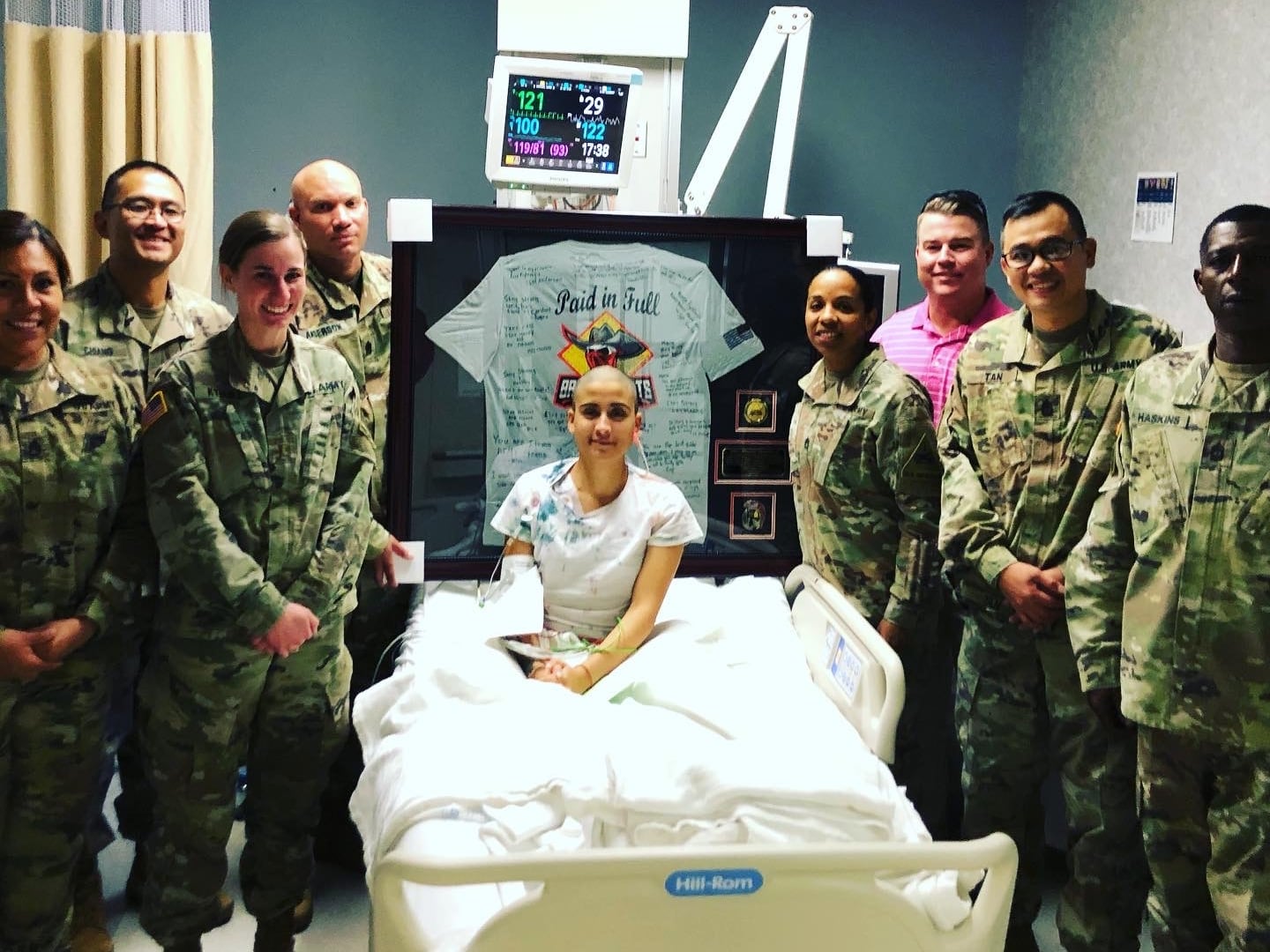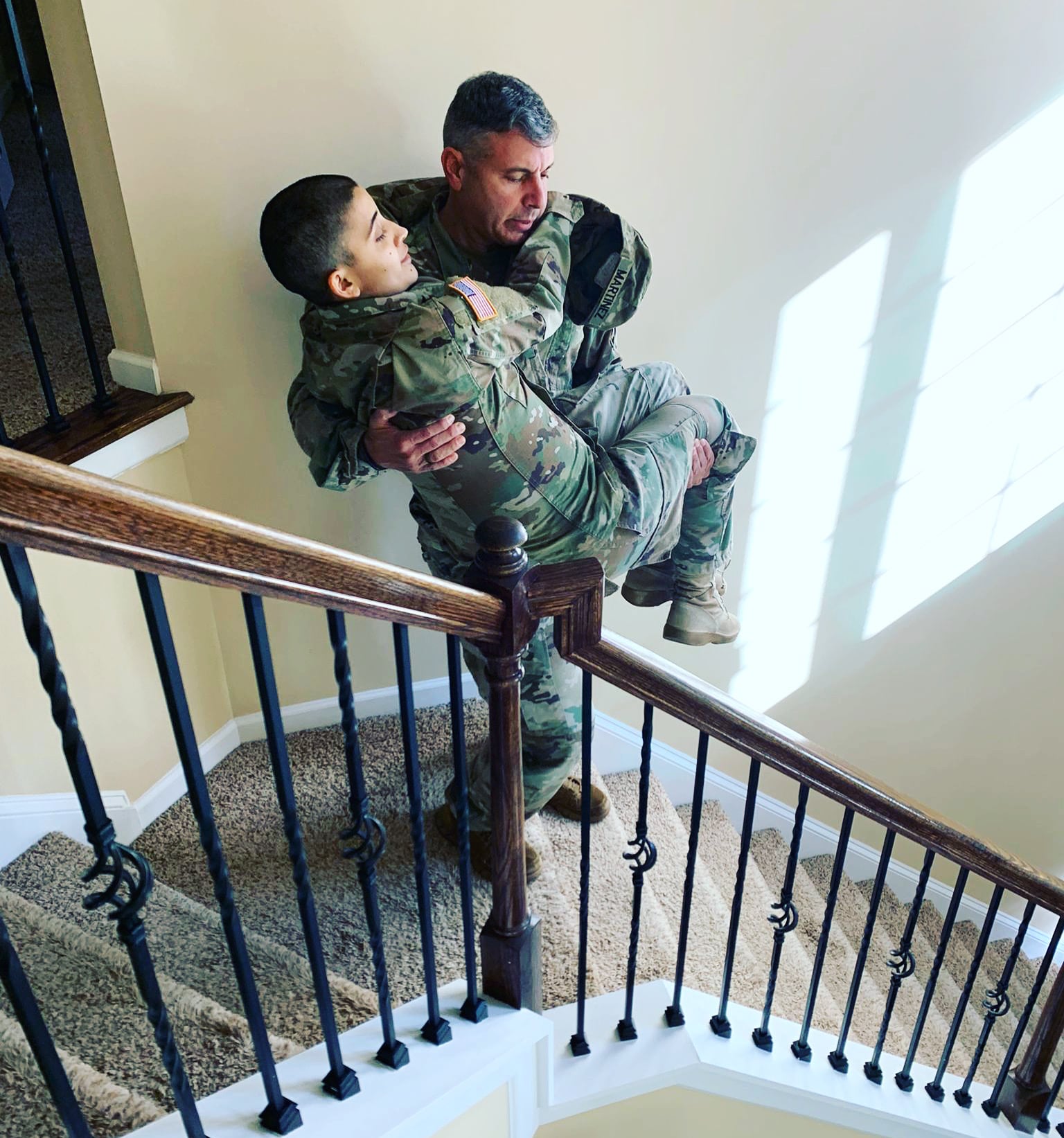The lawsuit of a 26-year-old Army specialist who died of a preventable breast cancer will be evaluated on its merits by an Army claims board after clearing another legal hurdle earlier this year.
The attorneys representing the family of Spc. Maria Martinez say they’ve redoubled efforts to bullet-proof the case with new expert testimony and endorsement in an effort not only to achieve a victory for her, but also to pave the way for reform of a system they say is opaque and unaccountable.
Martinez died in December 2021 after a two-year battle with advanced breast cancer. According to her family and legal documents, she had requested — and was denied by military providers — a medical screening for breast cancer in January 2019. Even though Martinez possessed the BRCA2 gene mutation, which is a strong indicator for breast cancer and had a family history of cancer that included her mother, according to documents, her TRICARE military medical insurance would not cover a diagnostic MRI screening, saying she didn’t meet necessary criteria. In follow-up appointments over the spring and summer, she was diagnosed with exercise-induced asthma to explain symptoms that included nausea and vomiting. Admitted to the emergency room at Fort Bliss, Texas that October with shortness of breath, providers found the cancer, which by then had progressed to Stage IV. Martinez, with the support of her father, Army Lt. Col. Eduardo Larumbe, filed a medical malpractice claim the month before she died. But the Army Tort Claims Division, which evaluates these kinds of complaints, found the statute of limitations had rendered the claim invalid.
The soldier’s case saw a major victory last October, when a judge for U.S. District Court for the District of Columbia denied the Army’s motion to dismiss, saying Martinez’s status as an active-duty service member “tolled” the statute of limitations, and thus pauses the clock, per the Servicemembers Civil Relief Act, a law intended to protect troops from certain financial and legal liabilities incurred during service. In late February, the case was dealt another win, when the same judge, Rudolph Contreras, ordered the case be resubmitted to the Army Claims Service rather than remaining in district court. For Martinez’s family, this means the Army will be forced, for the first time, to evaluate the young soldier’s case on its merits and render a decision.
Asked for comment about this case, Defense Department officials have said the department does not comment on pending litigation.
RELATED

A ruling from the Army Tort Claims Division is still likely months away, Martinez’s lawyers say. And the odds for these kinds of lawsuits are extremely poor. Master Sgt. Richard Stayskal, the soldier whose lung cancer case prompted legislation allowing troops to file medical malpractice lawsuits, had his own claim denied last year.
“We don’t know who is behind the curtain, and that is one of the frustrating things about this,” David Sheldon, the lead attorney for the family, told Army Times. “It’s just inconceivable that you present these cases, you know, 800, 900 cases, and the military decides that three or four should be compensated.”
As of 2022, the military services had settled a total of 11 medical malpractice lawsuits, for a success rate of 2%. Before 2021, such suits were prohibited under the Feres Doctrine, a law that protects the government from being sued by service members. Last October, the Defense Department increased the maximum amount of damages troops can be awarded if their suits are successful, from $600,000 to $750,000.

Two factors give Sheldon and collaborating attorney Dylan Thayer hope that their lawsuit will beat the odds. The first is the testimony of Kenneth Pennington, a retired medical oncologist with a large body of published work.
In a three-page review of Martinez’s case, Pennington said that skin irregularities the soldier had that persisted even after a course of steroids were cancer indicators that should have been caught at her first medical encounter in January 2019. At follow-up appointments, he added, providers did not even perform a simple breast exam on her, despite her family history and genes predisposing her to cancer. A chest X-ray from the time that came back normal, Pennington said, indicates that her cancer was then in the very early stages — unlike the incurable Stage IV condition that was ultimately diagnosed in October.
“It is my opinion, within a degree of medical certainty, that the failure to expedite diagnostic studies that would have led to the detection of cancer at a much earlier time was a violation of the standard of care,” Pennington wrote. “This act of negligence deprived [Martinez] of a chance for [a] cure.”
Martinez’s mother, Luisa Larumbe, told Army Times that her daughter had observed Luisa’s fight with cancer and took note of the advice she was given: If you notice a rash, or an inverted nipple, or abnormal skin condition, get checked out. But because Martinez was just 24 when symptoms first presented, Larumbe said, she was denied the tests she sought.
“She did exactly what she was told to do,” she said.
The other factor that makes the legal team bullish is the prior involvement of Contreras and U.S. District Court, even as the issue is back within the Army’s purview. To Sheldon, that creates a perception of outside oversight that he hopes will make the claims board more circumspect.
“They’re still back there, if you will,” he said. “I think that that also sends a message to the Army.”
That aspect of judicial review, Sheldon and Thayer say, created a degree of external accountability that is ensconced in the Federal Tort Claims Act (FTCA) protecting other government employees, but is much narrower for troops seeking redress from the military. They believe that a win in this case could create a platform for Congress to create a law that further aligns the military tort claims process with the FTCA.
“If you add judicial review, it will improve the system, because it will force the military to deal with bad acts and bad outcomes,” Sheldon said.
Lt. Col. Larumbe, who is completing a tour at U.S. Africa Command, said he’s in the process of retiring from the Army. The emotional toll of caring for and then grieving Martinez has affected his career, he said, and he now seeks time for him and his wife to “reinvent ourselves.”
But, he said, he wants to lay the groundwork for the kind of lobbying push for policy change that Sheldon described.
“That is something that we have to take on,” he said. “How do we further help other soldiers who might be going through this, so that they don’t receive the same mistreatment, or lack of treatment, that Maria did.”




